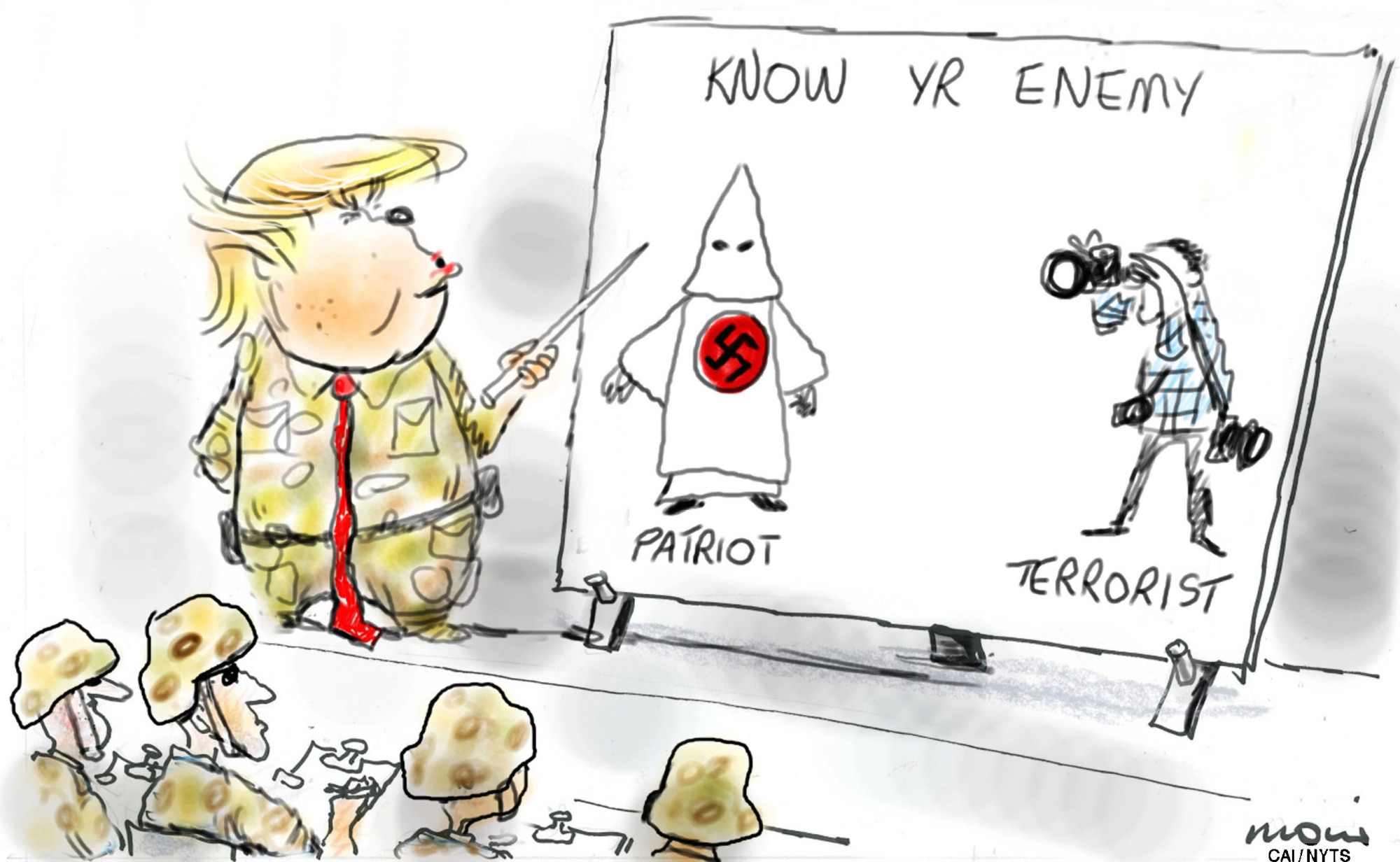Should rallies by neo-Nazis and white supremacists be met with violence?
That question was raised by the tragic events in Charlottesville, Virginia, on Aug. 12. White supremacists held a rally to protest the planned removal from a public park of a statue of Robert E. Lee, the leader of the Confederate army during the U.S. Civil War. A counterprotest was organized, and street fighting broke out. A woman, Heather Heyer, was killed and 19 people injured when James Fields, a white nationalist, drove his car at high speed into a crowd of counterprotesters.
At a subsequent news conference, U.S. President Donald Trump said that "both sides" were to blame for what happened. Trump's apparent equation of racists and opponents of racism was condemned in the strongest terms, even by some leading Republicans. There can, of course, be no equating of neo-Nazis and white supremacists with those who oppose racism. But a close reading of the transcript of Trump's remarks suggests that a more charitable interpretation is possible.

















With your current subscription plan you can comment on stories. However, before writing your first comment, please create a display name in the Profile section of your subscriber account page.